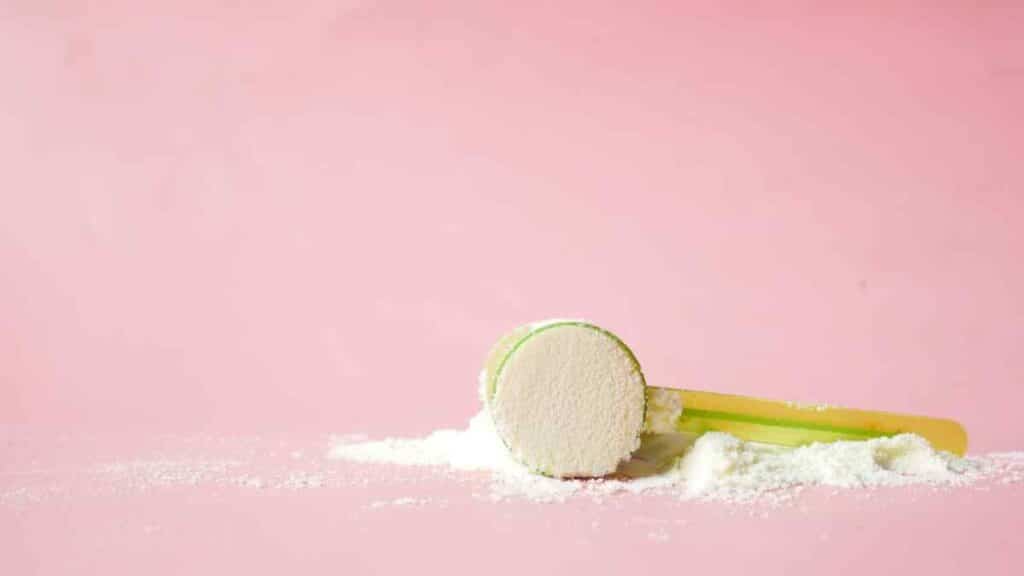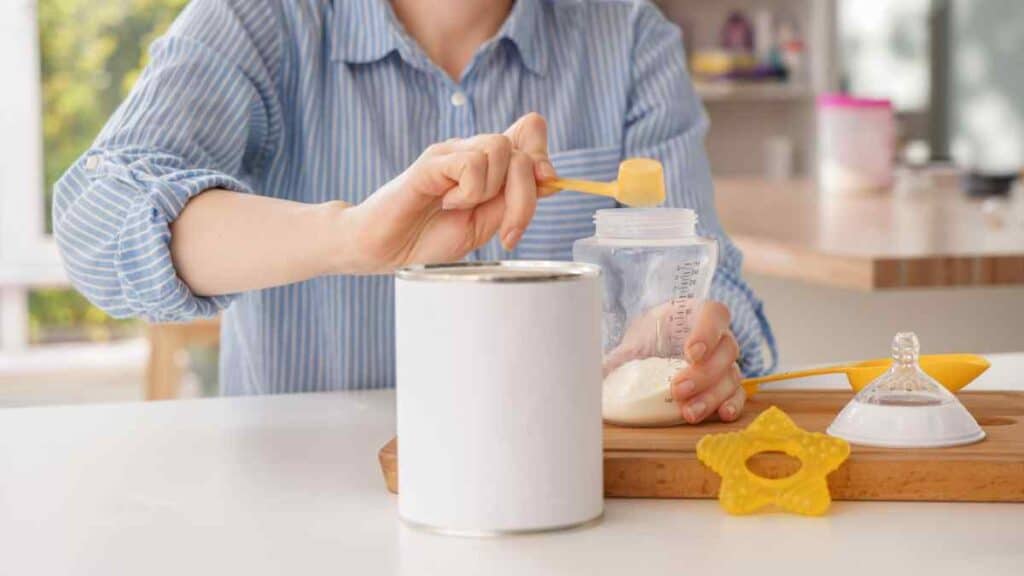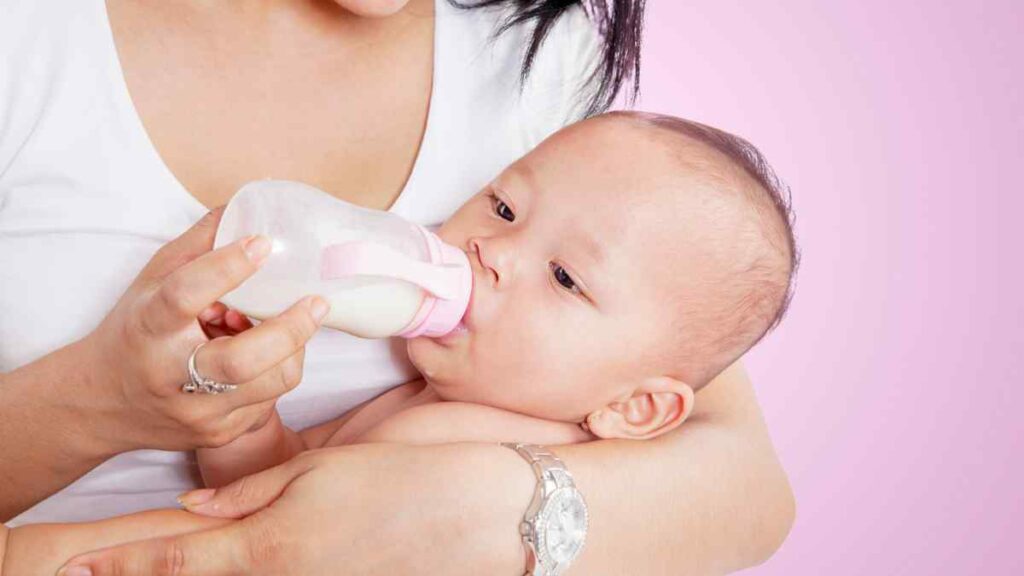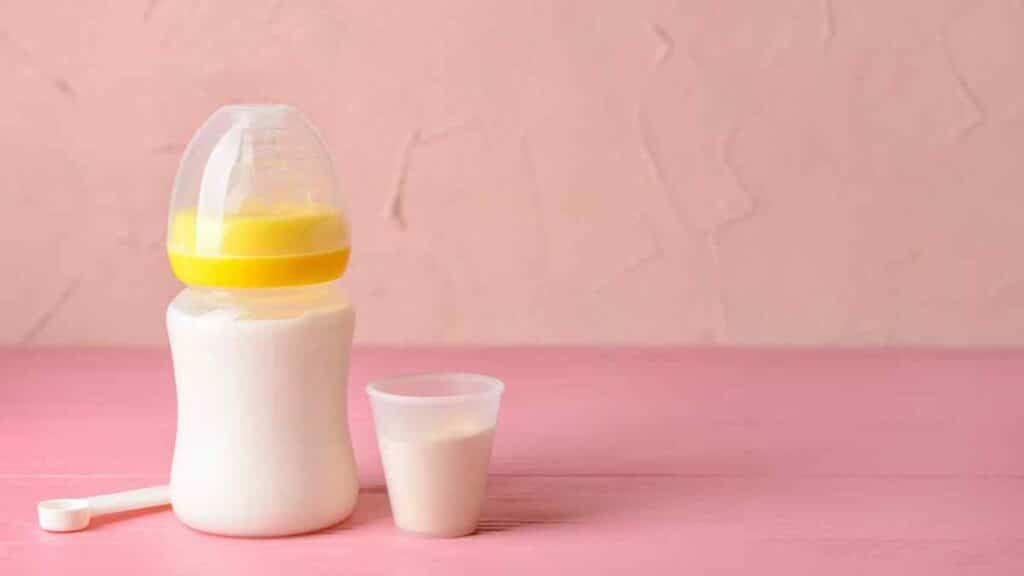The ongoing debate around homemade baby formula is one that entails a discussion about infant nutrition, healthcare, parenting choices, and a dash of DIY. The conversations involved are not just between parents making crucial decisions for their infants but also involve pediatricians, nutritionists, and health organizations. Therein lies the diversity, nuances, and contradictions. Advocates of DIY infant nutrition emphasize parental control over baby’s diet, allergy management, and the potential to customize nutrition. Opponents, on the other hand, warn against potential health risks due to inadequate sterilization and nutritional imbalances, which could seriously impact a baby’s growth and development.
In this blog, we unpack this debate. We will present you with a comprehensive assessment of both the risks and benefits of homemade baby formula. We will guide you through popular homemade formula recipes, explaining the health implications and possible hazards. To help ensure safety, we also share an output on how to prepare homemade baby formula safely. Alternatives to homemade baby formulas, from commercial ones to composite feeding solutions, also merit an in-depth discussion. Lastly, we provide essential tips to consider when choosing the best feeding solution for your baby. It’s a rich repository of information to aid parents in making informed decisions for their baby’s nutrition and wellness.

The Debate Over Homemade Baby Formula
The debate over homemade baby formula has been ongoing for many years. Some parents and experts advocate for the benefits of DIY infant nutrition, while others warn of the potential risks of homemade infant formulas to the baby’s health.
Making homemade formula gives parents more control over the ingredients and nutrients their baby receives, and it can be customized to suit a baby’s specific dietary needs or allergies. With the nationwide baby formula shortage, many parents are searching for homemade baby formula recipes online, looking for an alternative solution to feed their babies.
But some pediatricians and health organizations warn that homemade formula may not be as sterile as commercially-prepared formula and may not meet the same safety and nutritional standards, as babies need important nutrients in their bodies as they grow.
That’s why parents need to weigh the pros and cons of homemade infant formula and decide what is best for their baby.
The Risks of DIY Infant Nutrition
DIY infant nutrition, or making your own baby food at home, may seem like a cost-effective and healthy option, but it also comes with certain risks.
One risk is the possibility of food contamination. If the food is not properly stored or handled, it may spoil or harbor harmful bacteria.
Furthermore, if the ingredients used to make the baby’s food are not properly balanced, the baby may not receive all the necessary nutrients for healthy growth and development. Experts say that it may cause nutritional deficiencies.
Additionally, some parents may not be aware of which foods can harm babies and may unknowingly give them foods that can cause allergic reactions or other health problems.
It is essential to be aware of these risks and to take necessary precautions when preparing homemade baby food.
The Benefits of Homemade Baby Formula
Homemade baby formula can offer several benefits over commercially prepared formula. Read on to find out.
For one, it can be made with whole, natural ingredients, free from artificial preservatives and sweeteners. This can be especially beneficial for babies sensitive to these ingredients or parents looking for a more natural option.
Additionally, a homemade formula can be customized to meet the specific nutritional needs of a baby, such as increasing or decreasing the number of certain nutrients.
Homemade formula can also be less expensive than commercial formula, as it can be made with readily available ingredients and is less expensive than pre-packaged formula. Furthermore, it can give peace of mind that their baby is getting the best nutrition.

Homemade Formula Recipes That People Use
Homemade formulae recipes are sometimes prepared using unpasteurized cow’s or goat’s milk. Whilst the logic of emulating nature may feel sound, the danger lies in the presence of harmful bacteria such as E. coli, Salmonella, and Listeria, which are not uncommon in unpasteurized milk. These bacteria present potentially serious health risks to infants, who have immature immune systems and are susceptible to severe bacterial infections.
Moreover, homemade infant formula recipes are not subjected to FDA evaluation for quality, safety, or nutritional adequacy. Recent FDA reports have raised concern over infants who were hospitalized due to hypocalcemia (low calcium levels in the blood) after being fed homemade infant formula. Hypocalcemia in infants can cause severe complications such as seizures and heart problems.
Another downside to homemade formulas is that they may lack essential nutrients crucial to a baby’s growth and development. Nutrients such as protein, vitamins, and minerals that are necessary for a baby’s physical and cognitive growth may not be present in adequate or correct ratios in the homemade formula. For example, certain homemade formulas, such as vegan and dairy-free ones, often fail to provide essential nutrients like calcium. Difficulty in ensuring the correct balance of these nutrients can lead to both acute problems such as feeding issues, irritability, and seizures, as well as chronic, long-term nutritional imbalances.
This concern is one of the reasons pediatricians strongly endorse breast milk, considered the gold standard for infant nutrition, or commercial baby formulas that are regulated for optimum nutrition content. These options provide newborns with the required nutritional balance for their growth and development, a balance that is hard to replicate in homemade formulas. Breast milk and commercial formulas are designed to closely emulate the nutritional composition needed for an infant’s optimal growth, which is a complex task not matched by any other food or homemade formula.
How to Make Homemade Baby Formula Safely
Making homemade baby formula can be a healthy option, but it is important to ensure it is done safely. Here’s a list of how to make homemade baby formula safely:
Start by gathering all the necessary ingredients and equipment. You will need a clean and sanitized blender, a clean and sanitized glass or BPA-free plastic bottle, purified water, and the right ingredients for your recipe.
Measure out the appropriate amounts of each ingredient and add them to the blender. Some common ingredients include cow’s, goat’s, or a non-dairy alternative, such as soy or almond milk. You will also need to add a source of fat, such as coconut oil or avocado oil, and a source of carbohydrates, such as oatmeal or brown rice.
Blend the ingredients until they are well combined and the mixture is smooth. Be sure to blend for sufficient time to ensure that all ingredients are well combined.
Test the temperature of the formula by placing a few drops on the inside of your wrist. The formula should be lukewarm, not too hot or too cold. If the formula is too hot, let it cool down before feeding.
Carefully pour the formula into a clean, sanitized glass or BPA-free plastic bottle. Be sure to use a bottle with a slow-flow nipple to prevent the baby from choking.
Store the formula in the refrigerator and use it within 24 hours. If the formula is not used within 24 hours, it should be discarded.
Always wash your hands and sanitize all equipment before preparing the formula. Avoid using tap water, as it may contain bacteria or impurities. Use purified or distilled water instead.
Always consult with your pediatrician before giving homemade formula to your baby. They will be able to recommend the right ingredients and recipes for your baby’s specific needs and also monitor your baby’s growth and development to ensure that they are getting the proper nutrition.
Keep in mind that homemade formula is not a suitable replacement for breastmilk or commercial formula, it’s a temporary solution, and if you can breastfeed, it’s highly recommended by pediatricians and health organizations.

Alternatives to Homemade Baby Formula
There is a wide range of alternatives to homemade baby formula that parents can explore, depending on their baby’s health, nutritional needs, and personal preferences.
One commonly considered option is commercially prepared, organic baby formula. These products are made with organic ingredients and are usually free from artificial preservatives, sweeteners, colorants, or other potentially harmful additives. They are regulated by the FDA and are required to meet strict nutritional standards. Organic formulas can offer a middle-ground solution for parents who wish to steer clear of certain conventional formula ingredients, while ensuring their baby gets all the necessary nutrients.
Another alternative is a hydrolyzed protein formula, which is specially designed for babies with particular digestive issues. These formulas feature proteins that have been broken down into simpler, smaller pieces, making it easier for babies to digest them. Hydrolyzed protein formulas are often the go-to choice for babies with cow’s milk protein allergy or intolerance. They are also often recommended by pediatricians for babies with a higher risk of developing allergies.
Supplementing breast milk with formula is another widely used approach, often termed ‘mixed feeding’. It involves providing both breastmilk and formula to the baby, thereby marrying the benefits of both. This strategy ensures the baby continues to receive the myriad benefits of breastmilk, while formula provides any additional nutrition that might be needed. This approach is sometimes taken when mothers are unable to produce enough breastmilk.
Finally, exclusive breastfeeding remains an optimal choice for many parents, especially in the first six months of the baby’s life. Breastmilk is not only rich in nutrients but also contains antibodies that boost the baby’s immunity. The World Health Organization recommends exclusive breastfeeding for the first six months, and continued breastfeeding along with appropriate complementary foods up to two years or beyond. However, it’s crucial to note that the decision to breastfeed may be influenced by a host of factors, including maternal health, comfort, lifestyle, and personal choice.
Tips for Making the Right Choice
When choosing a baby formula, there are a few tips to keep in mind to help make the right choice.
First and foremost, it’s important to consult with a pediatrician or a lactation consultant. They can guide and advise on which formula is best for your baby.
Additionally, it’s important to read the labels of any formula you are considering and to be aware of any potential allergens. It’s also important to consider the formula’s ingredients and whether it is organic, non-GMO, and free from artificial preservatives, sweeteners, or other potentially harmful additives.
Also, it’s essential to consider the cost of the formula and whether it fits within your budget.
If you are considering homemade formula, ensure you have proper knowledge and understanding of the nutritional requirements for babies and that the ingredients you use are safe and appropriate.
Lastly, it’s important to remember that no one formula is perfect for every baby, and it may take trial and error to find the one that works best for your baby.
The Verdict on Homemade Baby Formula Safety
The verdict on the safety of homemade baby formula is mixed. While it is possible to make a safe and nutritionally-adequate formula at home, it requires a significant amount of knowledge and care to ensure that it is done properly.
Homemade formula may not be as sterile as commercially-prepared formula, and if not properly stored or handled, it may spoil or harbor harmful bacteria.
Additionally, if the ingredients used to make the formula are not correctly balanced, the baby may not receive all the necessary nutrients for healthy growth and development.
For this reason, many pediatricians and health organizations recommend that parents stick to commercially-prepared formulas, which have been thoroughly tested and are guaranteed to meet strict safety and nutritional standards.
However, suppose, for some reason, you decide to make your own formula. In that case, it’s important to consult with a pediatrician, use a recipe that an expert has reviewed, and monitor your baby’s growth and development to ensure they get the proper nutrition.
Consulting With a Healthcare Professional
Consulting with a healthcare professional is essential when making homemade infant formula. It’s important to ensure that the formula is nutritionally complete and safe for babies.
A healthcare professional can provide guidance and recommendations based on your baby’s needs and health history. They can also help you ensure that the formula contains all the necessary vitamins and minerals, such as iron and calcium, to support the baby’s growth and development.
A healthcare professional can also help you identify potential health problems or allergies that may arise from using a specific formula recipe.
Your baby’s health and well-being are of the utmost importance, so it is essential to seek professional guidance when deciding on their diet.
Benefits and Potential Risks of Homemade Baby Formula
Homemade baby formula can be a good option for parents who want to provide their little ones with a more natural and organic source of nutrition. But still, it’s important to understand this formula’s benefits and potential risks.
One of the main benefits of homemade baby formula is that it allows parents to control the ingredients and ensure that their baby gets the best nutrition. Also, homemade baby formula can be a good option for parents looking for an alternative to commercial baby formula due to a shortage or lack of availability.
However, it’s important to remember that homemade infant formula may not meet all of a baby’s needs and should be used as a supplement to a mother’s milk or other forms of infant feeding.
The homemade formula can lack some essential nutrients that commercial formula contains, such as iron and calcium, which are vital for a baby’s growth and development. If the formula does not have enough iron, it can cause anemia and other health problems. Also, if the formula has low calcium, it can lead to weak bones and other health problems.
It’s important to note that there are potential risks associated with making homemade formulas. Improper sanitation or handling of ingredients and incorrect measurements of ingredients can increase the risk of bacterial contamination or nutrient imbalances, which can lead to health hazards that can harm the baby.
The homemade formula may not have the same level of safety or nutritional balance as the commercial formula that has been tested and regulated by FDA. So, it is essential to consult with a healthcare professional.
They can help you to understand the potential risks and benefits and guide you in making the best decision for your baby’s nutritional needs. It’s also important to note that homemade formulas can vary greatly from recipe to recipe, so it’s important to do your research and consult before trying any specific recipe.

Conclusion
In conclusion, the debate over homemade baby formulas is akin to a tightrope walk. On one hand, it offers parents a sense of control over what their babies consume and provides a solution during formula shortages. On the other hand, the practice can pose significant health challenges, including food contamination, nutritional deficiencies, and potential bacterial infections from unpasteurized milk used in some recipes. Like most health-related issues, every decision made should prioritize safety, ensuring the welfare of the baby.
Going further into this discourse, this blog aims to present a balanced view, featuring comprehensive insights on the topic. We uncover the risks, benefits, homemade recipes, safety measures for homemade formulas, viable alternatives, decision-making tips, and expert judgments on homemade baby formula’s safety. In essence, this is a valuable resource for parents weighing the intricacies associated with feeding their infant either homemade or commercial baby formula.
We hope you found this article helpful! If you have questions, feel free to leave a comment below.



